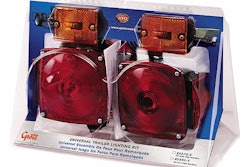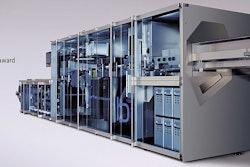Conducted from March 2002 through December 2004, the study was done by Ohio State University and the Centers for Medicare and Medicaid Services, which provided financial support.
The study “showed fundamentally that the principle of repackaging medicines is way more effective than loose tablets,” says the study’s author, Philip J. Schneider, M.S., and clinical professor and director at the Columbus, OH, university’s College of Pharmacy. The study involved 88 seniors with hypertension. Of these 88, 48 were randomly selected to receive Merck’s lisinopril (Prinivil is its brand name) in blister packs. Cardinal Health supplied the materials and did the packaging. Forty patients received the same medication in traditional bottles.
Schneider says that not only did a blister-packed 28-day supply of Merck’s hypertension medication improve drug regimen compliance in the randomly selected patients who used the blister pack, “but it also lowered the diastolic blood pressures of 48 percent of those patients.” Conversely, only 18% of the 40 seniors who took the drug in a traditional bottle showed a decrease in their diastolic blood pressures.
“We found that 66 percent of patients who had medicines filled loosely in bottles had their prescriptions filled on time,” Schneider says, “which is within plus-or-minus five days from the 28-day refill time. The number increased to 80% for patients with the blister pack. That’s considered statistically significant.”
For more information, e-mail Philip Schneider at [email protected] or visit http://researchnews.osu.edu —Jim Butschli


























